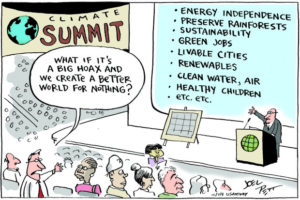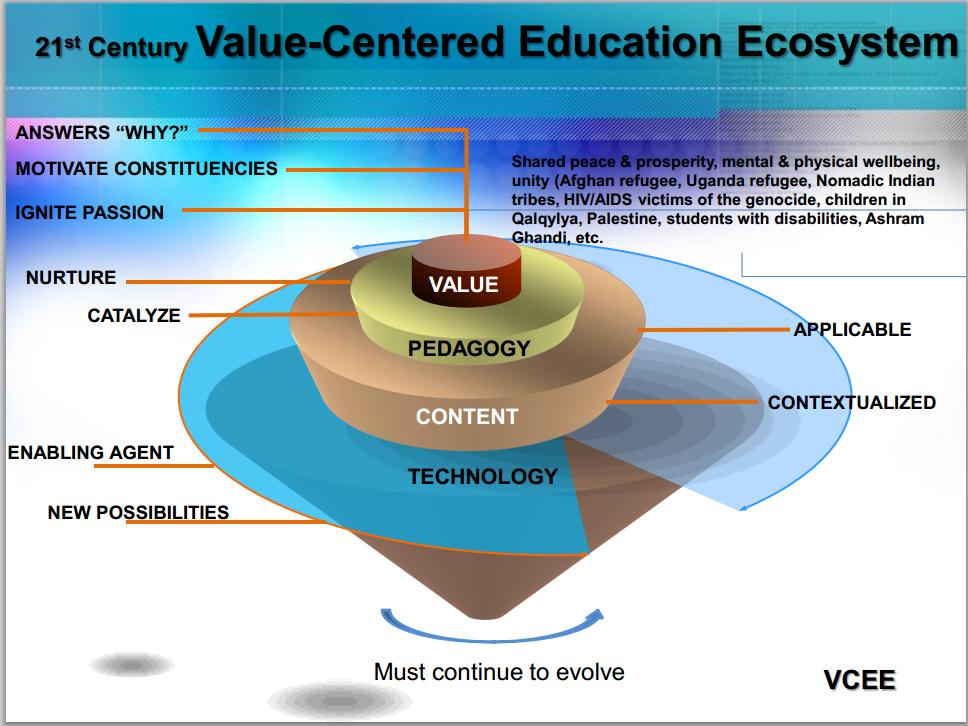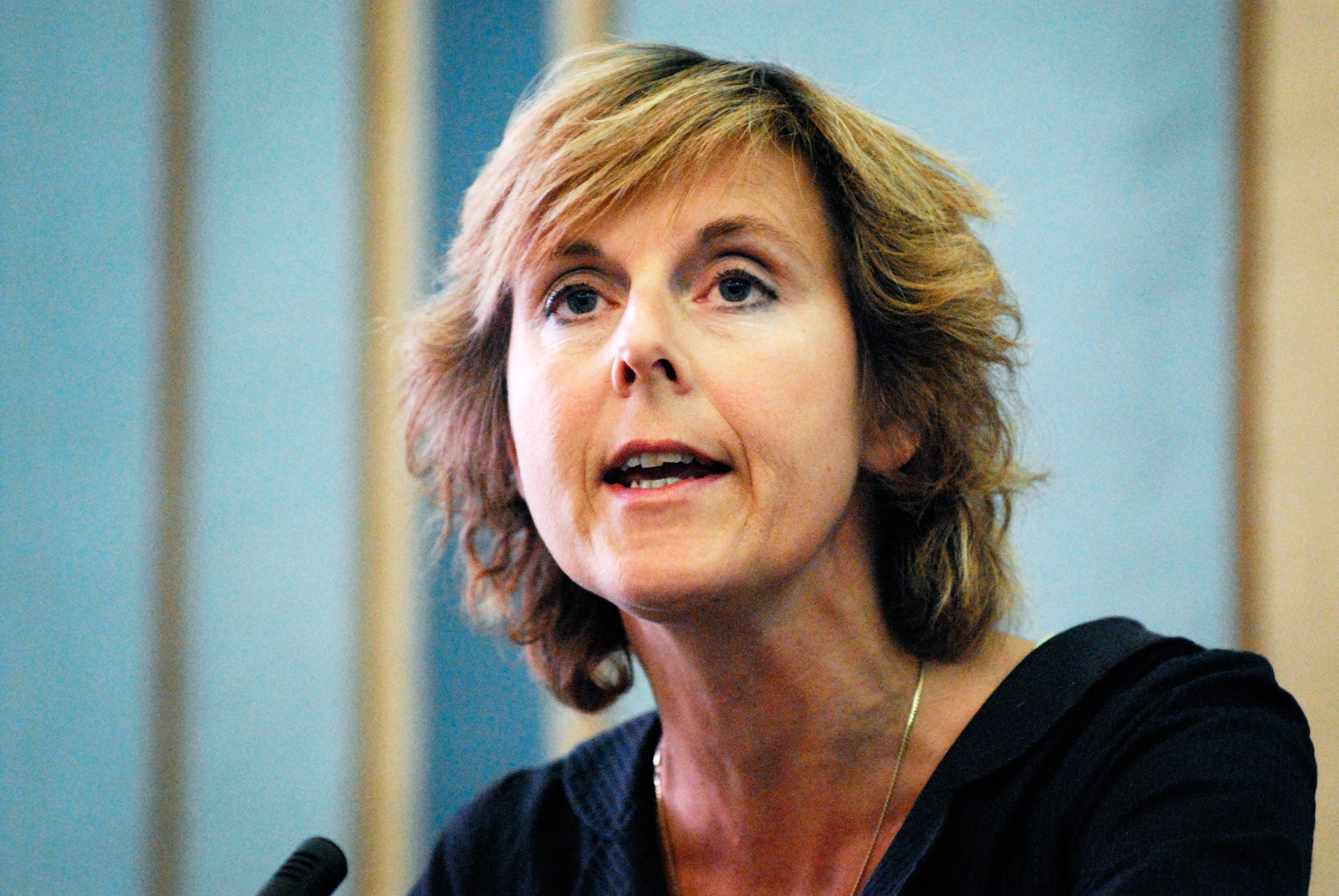It was a pleasure to watch an accomplished, knowledgeable and honest politician at work yesterday when I went to hear Connie Hedegaard talking about climate change and what needs to be done on a political level. Hedegaard is no longer a politician but has been an MP in the Danish parliament, Denmark’s Minister for the Environment and then an EU Commissioner for the Environment. She presided over the Copenhagen climate meeting in 2009 and now works mainly as a consultant.
This was a talk and discussion that she led in our local town. In the end it is about values and common sense.
Hedegaard started by reminding us that she was not a scientist, having majored in literature and history, and that she relies on experts for advice. However it was obvious that she was incredibly well informed having worked on the topic for over a decade now.
What if the scientists are wrong, someone in the audience asked? Here Hedegaard’s answer reminded me of my favourite climate change cartoon (yes I have one!).

She replied that if you took your child to the doctor and the doctor said
I am 95% certain that your child has this illness and that you should treat him/her with X, Y and Z,
then most parents would accept that as good enough. So when scientists have a high degree of agreement about what is going to happen, that it is urgent and that it is most likely manmade, then the most sensible option seems to be to go with the scientists.
Arnold Schwarzeneggar is also a climate change activist and in his post makes the point that the world will be a much better place with clean energy even if you do not believe that climate change is manmade and reversible.
Someone in the audience asked why Denmark continues to apply higher environmental standards than required by the EU and other bodies and wasn’t this harmful to the competitiveness of Danish business. Again Hedegaard was adept at turning this around by making the point that the existence of EU standards ensured that countries around Denmark were raising their standards and that in any case Denmark makes a great deal of money selling its green expertise globally.
In the end Hedegaard was cautiously optimistic and warned her Danish audience not to be too complacent in assuming that Denmark leads the way. India for example is dealing with its plastic refuse problem, Norway encourages its citizens to switch to electric cars through reverse taxation and other incentives such as free parking. And globally, Hedegaard saw encouraging signs from such behemoths as China. She thinks that nations are acting much more quickly and decisively in the last five years (with the possible exception of the USA for the time being).
In the Prof E Sus project where we are developing a blended learning course for vocational trainers we have identified the following areas as critical skills for vocational teachers of the future:
- Future-oriented
- Systems thinking
- Strategic thinking
- Values thinking
- Collaborative
Others have thought about what a values-based education could look like. For example the graphic below shows what a values-based approach could look like.

And in Lorek’s session in Bonn in January we were told that personal behaviour changes were not enough and that governments had to step up with legislation. And this was clear from Hedegaard’s comments.
She kept talking about the need for long term thinking (future-oriented), she kept emphasising the role of government in turning around behaviour (strategic and systemic) but she also made the point that in democratic societies government action can only be based on the consent of the electorate, which was a reason for making sure that voters let their politicians know that they are concerned about climate change (values). Hedegaard also used her journalistic and global political background to show how many of the issues which are concerning us now such as conflicts and mass migrations are all interlinked and that climate change plays a role, even if not directly causing catastrophes (systemic). And she feared that the USA’s new isolationist stance would not in the end benefit Americans and certainly not the rest of the world (reverse of collaborative). And so we had a classic illustration of the importance of all five sustainability skills in a one hour speech.
Image: Johannes Jansson/norden.org
- CC BY 2.5 dk
- File:Connie Hedegaard, miljo- och samarbetsminister Danmark, under Nordiska radets session i Kopenhamn 2006.jpg
- Created: 2 November 2006

